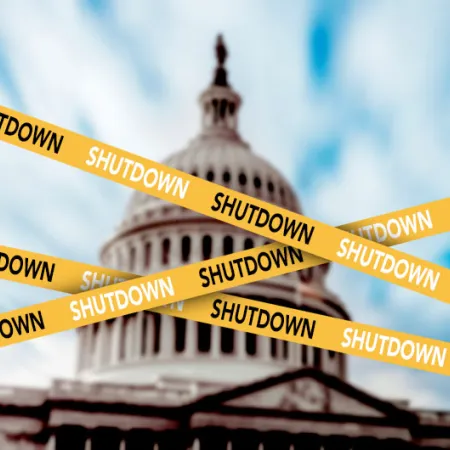Last week, some of the biggest players in Big Food, including household names like Nestlé, Coca-Cola, General Mills, Hormel, and PepsiCo, teamed up to launch a lobbying coalition to permanently undermine food safety in the United States.
The new coalition is purportedly seeking to reform the “Generally Recognized as Safe” (GRAS) loophole, a federal policy that allows food companies to self-certify their ingredients as safe and then introduce them into the market without even informing FDA. At the same time, there are rumblings of Senator Roger Marshall (R-Kansas) introducing a federal bill to amend the GRAS process, pairing it with a preemption provision, a move that aligns with the interests of the new group.
It may come as a surprise to no one that the new front group, ironically titled “Americans for Ingredient Transparency,” has a special interest in taking on federal food chemical safety reform.
The group has stated that one of its primary goals is to ensure that the federal government is the first and last word in food safety, superseding any state law – a process called “preemption.” This preemption effort will be sweeping, as the group aims to include not just ingredient safety but also “safety assessments, registrations, reporting requirements, and labeling requirements.”
A second goal of the group will be to attempt to influence federal regulation to meet the needs of its members, a goal that will certainly result in weak federal standards governing GRAS, likely a system that does not fully close the GRAS loophole by requiring premarket approval for new food chemical uses.
Preempting state laws has become a top priority for major food companies in reaction to a wave of state bills that began with the California Food Safety Act of 2023, which banned four harmful additives. In the past year, bills regulating food chemical safety have sprung up across multiple states with both Democratic and Republican champions targeting synthetic dyes, titanium dioxide, potassium bromate, propylparaben, toxic heavy metals, and a host of other chemicals tied to health risks.
These bills, often encouraged by Health and Human Services Secretary Robert F. Kennedy, Jr., have created momentum and new energy at the FDA, an agency that has long been sluggish in regulating food chemicals, thanks in large part to years of effective industry lobbying. But since the California law passed, the FDA has gained new enthusiasm to regulate, banning Red 3 and brominated vegetable oil (BVO), two of the chemicals on California’s ban list earlier this year. The FDA is now also reviewing many of the chemicals targeted by other state bills.
Big Food is desperate to kill this momentum. As the word “transparency” in its name hints, the group is aiming to attach this preemption agenda to popular consumer transparency initiatives, including reform of GRAS. Not only is the current secret GRAS process non-transparent, but some of the chemicals going through GRAS are not even disclosed because they can be declared simply as “flavors” on the ingredients list. GRAS reform is that modern day unicorn: an issue that is popular across the political spectrum and therefore likely to win support.
Closing the GRAS loophole means requiring not just transparency, but independent safety review to ensure chemicals are carefully tested before they enter the market, a job that would fall to the FDA if the GRAS provision were truly reformed.
So far, there have been several Congressional proposals to reform the GRAS loophole, including the Grocery Reform and Safety Act (H.R.4958), the Ensuring Safe and Toxic-Free Foods Act (S.2341), and the Toxic Free Food Act (H.R.9817). The authors of these bills have worked with groups like the Center for Science in the Public Interest, knowing that we have fought for decades to reform the GRAS loophole. And these bills, which we endorse, require strong, independent premarket review for new food chemicals. None includes preemption.
Senator Marshall has not shared his bill or sought input from CSPI and other consumer groups, but as described by a member of the Senator’s staff the bill would include preemption, harmonizing diverse state laws by creating a single standard, a benefit to ease compliance for food companies, particularly if the federal standard is not a strong one.
Unsurprisingly, given the lack of consumer input, the GRAS provisions in the Marshall bill are reported to be weak. Rather than requiring premarket approval for all new chemical uses, the bill would simply require food companies to “notify” the FDA of their plans to use a new chemical in foods.
Such a bill would not “close” the current loophole in federal law. Instead, it would enshrine the evasion of premarket review at the additional cost of broadly wiping out stronger state food safety laws now and in the future.
Such a bill would clearly be bad for consumers, but the approach seems tailor-made for the goals of the new front group. Senator Marshall also seems to have taken his bill-naming cues from industry in titling his bill the “Food Ingredient Transparency (FIT) Act,” eerily similar to the name of the front group.
Influential figures within the "Make America Healthy Again” (MAHA) community who have supported state food chemical safety bills, including Vani Hari (AKA the Food Babe), are already taking fierce aim at the new industry group. If this bill were introduced by Senator Marshall, the co-chair of the “Make America Healthy Again” caucus, it would be an extreme betrayal of the work of the many MAHA-aligned activists who are fighting for safety reform at the state and federal levels.
The FIT Act is a title that fits well with the food industry’s misleading messaging, but I have a title for any bill that matches the food industry’s agenda by "harmonizing” state laws with a weak and ineffective federal standard: the “Setting Harmonization Above Meaningful Governance and Real Additive Safety” Act, or SHAM GRAS Act.
If Senator Marshall, or any member of Congress, puts out a GRAS reform bill to serve industry’s agenda, they should be prepared for consumer advocates to call it what it is: the SHAM GRAS Act, a name that shows its true impact.









